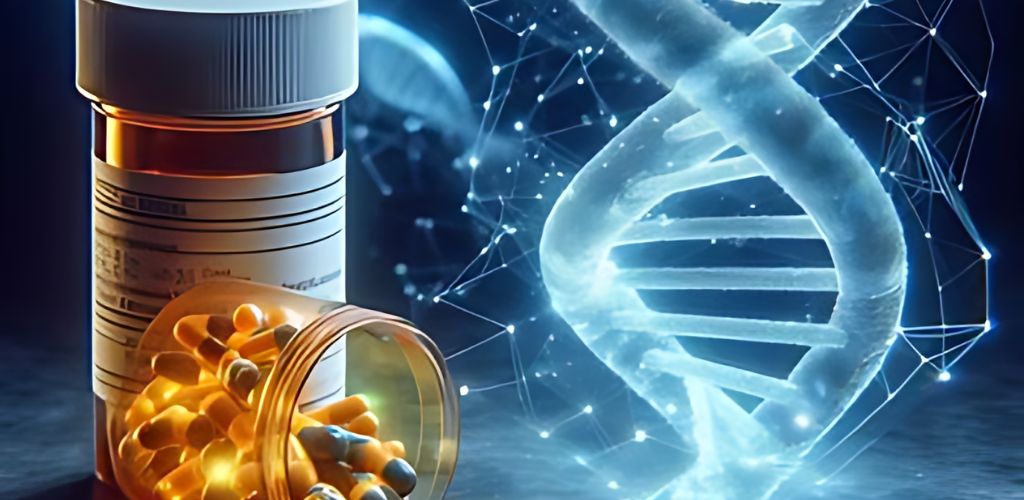In the ever-evolving world of medicine, the dream of prescribing the right drug at the right dose, tailored perfectly to an individual’s genetic makeup, is no longer science fiction. Precision medicine, which aims to customize healthcare to each individual, has made this vision a reality through pharmacogenomics. By examining how a person’s genes influence their response to medications, we can now optimize treatments to minimize side effects, boost effectiveness, and significantly improve patient outcomes.
Pharmacogenomics offers a revolutionary approach to patient care. Instead of relying on trial-and-error methods to find the right treatment, physicians can now use genetic information to guide their choices. This not only enhances the accuracy of treatment but also reduces the risk of adverse reactions, ultimately making healthcare more personalized, effective, and safe. In the years ahead, as genetic testing becomes more commonplace, pharmacogenomics will play a critical role in redefining medical treatment standards.
What is Pharmacogenomics?
Pharmacogenomics combines pharmacology (the study of drugs) and genomics (the study of genes) to understand how an individual’s genetic code affects their reaction to medications. Genetic variations can impact everything from how fast a drug is metabolized to how sensitive an individual might be to a drug’s effects. This variability can lead to the vast differences in drug response seen among patients.
Key Benefits of Pharmacogenomics
Pharmacogenomics is transforming how drugs are prescribed and monitored. Here are the core benefits it offers:
- Personalized Medicine: Move beyond the one-size-fits-all model by tailoring treatments to the genetic profile of each patient, ensuring optimal efficacy.
- Minimizing Side Effects: By identifying genetic variations that increase the risk of adverse drug reactions (ADRs), doctors can select medications that are safer for each patient.
- Optimized Drug Dosing: With genetic insights, healthcare providers can fine-tune drug dosages for individual patients, avoiding underdosing or overdosing.
- Enhanced Treatment Outcomes: Pharmacogenomic-guided treatments lead to improved clinical outcomes, as medications are chosen based on the likelihood of a favorable response.
Pharmacogenomics in Action: Real-World Examples
Pharmacogenomics is already being applied in various therapeutic areas with notable success:
- Cardiovascular Medicine: Genetic variations in enzymes like CYP2C19 affect how well patients metabolize blood thinners like clopidogrel. By testing for these variations, cardiologists can adjust dosages or select alternative treatments, reducing the risk of heart attacks or strokes.(1)
- Cancer Therapy: Oncology has seen a major breakthrough with pharmacogenomics, where genetic profiles of tumors guide targeted therapies. Drugs like trastuzumab are only effective in patients whose tumors have specific genetic markers, making treatment more precise and effective.(2)
- Psychiatry: Psychiatric medications often show varying results due to differences in how patients metabolize drugs. Genetic tests for enzymes like CYP2D6 help predict how a patient will respond to antidepressants or antipsychotics, significantly improving outcomes and reducing the trial-and-error approach to treatment.(3)
How Does Pharmacogenomics Work?
Pharmacogenomic testing is straightforward, typically requiring just a saliva or blood sample. This sample is analyzed to identify key genetic markers that influence drug metabolism, absorption, and effectiveness.
Key Genes in Pharmacogenomics:
- CYP450 Enzymes (CYP2D6, CYP2C19, CYP2C9): These enzymes play a crucial role in metabolizing many commonly prescribed medications. Genetic variations can cause a patient to metabolize drugs more slowly, normally, or very quickly, affecting how well treatments work and influencing the risk of side effects.(4)
- SLCO1B1: This gene affects how the body transports statins, which are used to lower cholesterol. Variants can increase the risk of muscle pain and damage from statin therapy.(5)
- TPMT (Thiopurine S-Methyltransferase): TPMT variations affect how the body processes thiopurine drugs used to treat certain cancers and autoimmune diseases. Patients with low TPMT activity are at a higher risk of severe side effects from standard doses of these drugs.(6)
The Impact of Pharmacogenomics on Major Diseases
- Cancer Treatment: Pharmacogenomics is revolutionizing cancer care by enabling targeted therapies. Unlike traditional chemotherapy, which attacks both cancerous and healthy cells, targeted treatments focus on specific genetic mutations within the tumor. For example, EGFR mutations in lung cancer patients can predict the effectiveness of drugs like gefitinib, helping doctors decide on the best course of action.(7)
- Cardiovascular Disease: Patients on anticoagulants like warfarin can experience dangerous side effects if the drug is not metabolized properly. Variants in the CYP2C9 and VKORC1 genes influence how the body responds to warfarin, and genetic testing can help personalize the dose to reduce the risk of bleeding or clotting.(8)
- Mental Health: Mental health treatments, particularly for depression and anxiety, are often riddled with trial-and-error approaches. Pharmacogenomics removes the guesswork by providing insights into how a patient’s genetic profile will interact with specific medications. CYP2D6 variations, for example, affect the metabolism of antidepressants, allowing doctors to prescribe medications that are more likely to work from the start.(3)
The Future of Pharmacogenomics: Overcoming Barriers
Despite its groundbreaking potential, the widespread adoption of pharmacogenomics still faces several challenges:
- Cost: While the cost of genetic testing has dropped significantly in recent years, it remains a barrier for some patients, especially in regions or countries where health insurance does not cover such services. Expanding access to pharmacogenomic testing will be crucial in making it a routine part of clinical care.
- Data Integration: To fully harness the power of pharmacogenomics, healthcare systems need to integrate genetic information into electronic health records (EHRs). However, this process is complex and requires the standardization of genetic data, collaboration between IT systems, and careful consideration of patient privacy concerns.
- Education: Many healthcare providers and patients are still unfamiliar with the benefits and applications of pharmacogenomic testing. Educational initiatives are needed to raise awareness among both groups, ensuring that patients can advocate for testing, and physicians are equipped to interpret and apply the results in clinical practice.
DrOmics Labs: Pioneering Pharmacogenomics Testing
DrOmics Labs is at the forefront of precision medicine, offering cutting-edge pharmacogenomic testing services that empower clinicians to make data-driven, personalized decisions for their patients. By analyzing key genetic variants that impact drug response, Dr Omic Labs helps doctors optimize treatment plans, ensuring that each patient receives the right drug at the right dose.
Conclusion
Pharmacogenomics is transforming healthcare by tailoring treatments to an individual’s genetic makeup. By aligning medications with a patient’s unique genetic profile, it reduces the risk of side effects, enhances treatment effectiveness, and improves overall patient outcomes. This shift toward personalized medicine marks a significant step forward in optimizing care for each individual.
As pharmacogenomics continues to evolve, it holds the promise of making healthcare not only more precise but also more compassionate. By minimizing the trial-and-error approach to medication selection, it has the potential to enhance the quality of life for patients worldwide, paving the way for a future where treatments are safer, smarter, and more effective.
Reference:
(1)https://link.springer.com/article/10.1007/s40119-024-00348-7
(2)https://humgenomics.biomedcentral.com/articles/10.1186/s40246-023-00493-5
(3)https://pubmed.ncbi.nlm.nih.gov/29699889/
(4)https://www.ncbi.nlm.nih.gov/books/NBK557698/
(5)https://www.nejm.org/doi/full/10.1056/NEJMoa0801936
(6)https://www.ncbi.nlm.nih.gov/books/NBK100661/




